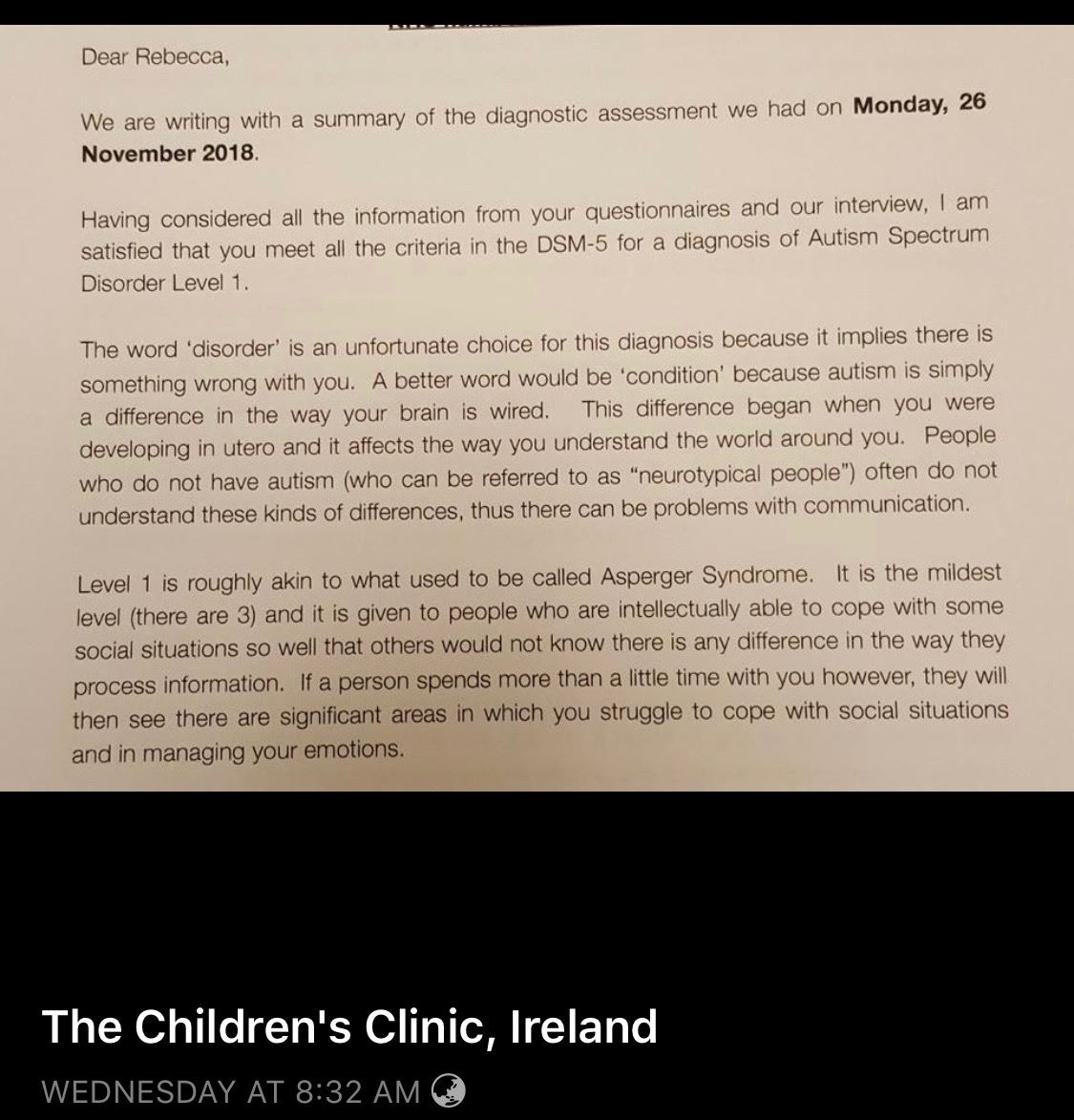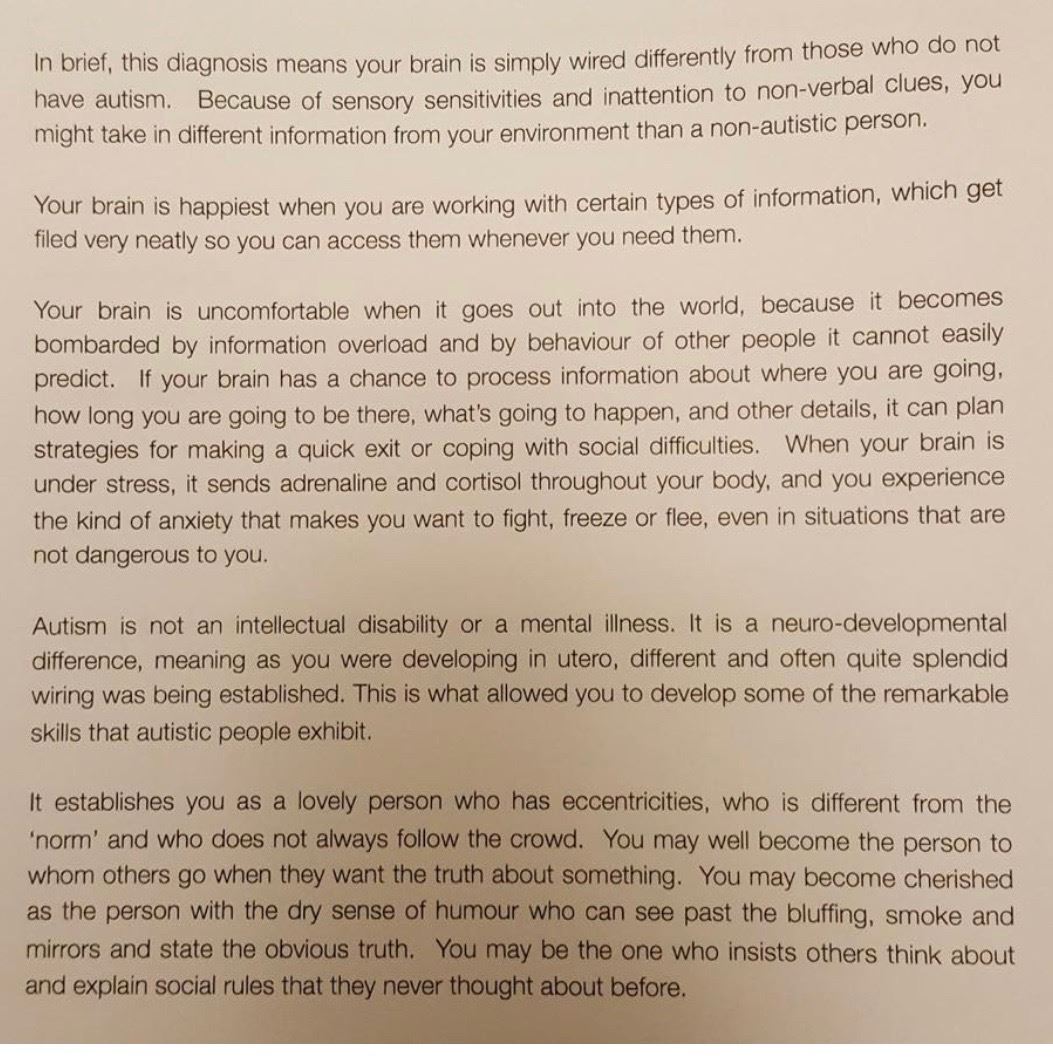Getting an Assessment
Assessment versus Diagnosis
Sometimes there is confusion around these two terms and their meanings.
Assessment:
| Diagnosis:
|
Getting an Assessment - For Children
Why get an Assessment:Many people live their lives knowing they are different from those around them, without knowing why. If you are content with the status quo, you may feel there is no need for a diagnosis to confirm your suspicions. However, for some people, especially children, there may be advantages to putting a name to the differences they experience. A formal diagnosis may lead to additional practical support at school, increased understanding of areas of difficulty, and financial assistance with therapies and treatments. If you’re unsure whether you want your child or yourself to be ‘labelled’, you may want to read first-hand accounts from individuals who have been there, done that. Try Look Me in The Eye by John Elder Robinson, Freaks Geeks and Asperger Syndrome by Luke Jackson, or Asperger Syndrome, the Universe and Everything by Kenneth Hall. At What Age?This is a common question we hear - how old does the child have to be for a diagnosis to be accurate? It used to be thought that the child needed to be of school age for testing to be accurate, but that is no longer the case. With improved diagnostic tools and better awareness, children are being reliably diagnosed with an autism spectrum condition from the age of 2. The USA Government's Center for Disease Control and Prevention gives the following average age of diagnosis data from 2008 studies - for autistic disorder age 4 years, for autism spectrum age 4 years 5 months, and for Asperger Disorder 6 years 3 months. | Once you decide you want a professional diagnosis there are two paths you can take: government funded, or private assessment. Government Funded Assessment Teams:You can get in touch with a government-funded team that specialises in the assessment and diagnosis of ASD (Autism Spectrum Disorder). Parents can telephone these teams directly. There can be lengthy waiting lists. Contact the team closest to where you live. View the Amaze document Autism Spectrum Disorder Assessment Teams in Victoria to see the full list for Victoria. Private Providers:The other (more costly) option is to seek assessment by a private professional provider. We can direct parents or adults seeking a diagnosis to professionals who have a special interest and/or experience in dealing with and diagnosing autism. Anyone can make an appointment to see a psychologist. We recommend a preliminary conversation/email with the professional explaining your situation and need. This will assist you in determining their level of experience. Over the years AV has compiled lists of various professionals working in the area of Autism Spectrum Disorders. You are also welcome to browse our Professional Directory. |
Getting an Assessment - For Adults
Unfortunately there is very little financial help for adults seeking an assessment for an autism spectrum condition. All the services and funding arrangements above apply to children only. Your first step should be to see your GP. They should be able to refer you to a psychologist, and write a Mental Health Care Plan (MHCP) so you can get Medicare rebates for some of the cost. If they are reluctant, and you feel strongly about it, you may need to seek another opinion. You can also visit the Australian Government Better Access Initiative website for information about Medicare rebates for mental health care. For further details of allied health care providers, we invite you to browse our Professional Directory. | Other Professional Assessment Help
Amaze/Autism Victoria’s website provides an excellent detailed description of the assessment process for children, and the different pathways for adults. |
Here is an example of a wonderful letter of explanation about an autism diagnosis from Ireland:
 |  |


